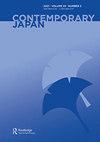Family planning and life planning in contemporary Japan: The “active pursuit of pregnancy” (ninkatsu) phenomenon and its stakeholders
引用次数: 0
Abstract
ABSTRACT This article examines neoliberal bio-political strategies by scrutinizing a current discourse concerning fertility in mass media and the policy-making arena, a narrative formed around the catchy word creation “active pursuit of pregnancy” (ninkatsu). In the discourse of ninkatsu, which debuted in a women’s magazine in 2011 and inspired a similar narrative in new policies aimed at fighting the low birth rate, young women are encouraged to generate favorable circumstances for having children as early as possible in their life. For instance, these incorporate the management of personal conditions such as career and marriage as well as thorough life planning including deliberations on physiological factors which affect the “maintenance” of a fertile body. Drawing on concrete examples from a narrative in new demographic policies, a special ninkatsu edition of said women’s magazine, a family planning guidebook for young women, and a TV documentary focusing on the aging of egg cells, the claims of the article are threefold. First, by shedding light on the involvement of stakeholders in media and the health care industry together with political actors, a broader range of stakeholders than solely policy makers in the strategies of contemporary population politics is highlighted. Second, the article shows that the contemporary narrative of family planning revolves around the rule of self-responsibility and self-optimization. Third, by taking a gender perspective, the article points out how women’s bodies are exploited in the name of “autonomy” for demographic national goals as well as for economic profit making.当代日本的计划生育与生活计划:“积极追求怀孕”现象及其利益相关者
本文通过审视大众媒体和政策制定领域中有关生育的当前话语,考察新自由主义的生命政治策略,这是一种围绕着“积极追求怀孕”(ninkatsu)这个吸引人的词创造而形成的叙事。在2011年首次出现在一本女性杂志上的“新松”(ninkatsu)的论述中,年轻女性被鼓励创造有利的环境,尽可能早地生孩子。该论述在旨在对抗低出生率的新政策中也受到了类似的启发。例如,这些包括对个人状况的管理,如事业和婚姻,以及彻底的人生规划,包括对影响“维持”生育能力的生理因素的审议。这篇文章从新人口政策的叙述、《妇女》杂志的一份特别版、一本针对年轻女性的计划生育指南和一部关注卵细胞衰老的电视纪录片中举出具体的例子,提出了三方面的主张。首先,通过揭示媒体和卫生保健行业的利益相关者与政治行为者的参与,突出了当代人口政治战略中更广泛的利益相关者,而不仅仅是决策者。其次,文章表明,当代计划生育叙事围绕着自我负责和自我优化的原则展开。第三,文章从性别的角度,指出女性的身体是如何以“自主”的名义,为人口国家目标和经济利润而被剥削的。
本文章由计算机程序翻译,如有差异,请以英文原文为准。
求助全文
约1分钟内获得全文
求助全文

 求助内容:
求助内容: 应助结果提醒方式:
应助结果提醒方式:


